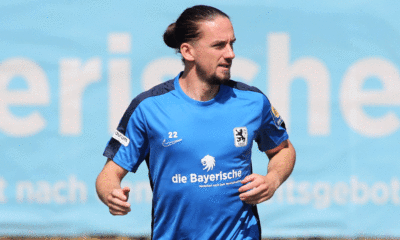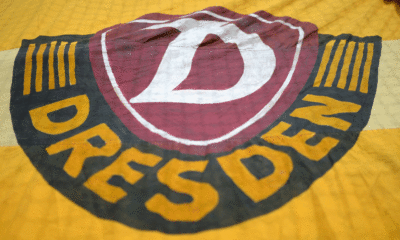Bundesliga
Oliver Kahn at Bayern Munich before the end? Why the CEO is under criticism
Published
1 year agoon
By
Maria Keane
After the developments of the past few months and the end of the Champions League, there are rumors surrounding FC Bayern Munich about a possible replacement of CEO Oliver Kahn. What can you accuse Kahn of?
After a year and a half as a normal member of the board, the former team captain of FC Bayern took over as chairman of the board in summer 2021 and thus became the most powerful employee of the German record champions.
Oliver Kahn at Bayern: The sporting record
The easiest way to measure Oliver Kahn’s tenure as CEO is of course the sporting record – and that’s not good, at least by Munich standards. Since the summer of 2021, FC Bayern has only won one championship title, and a second could follow this year. The advantage over pursuers Borussia Dortmund is only two points six games before the end of the season.
In the DFB Cup, the Munich side failed because of two outsiders. Last season embarrassingly 0:5 against Borussia Mönchengladbach, recently narrowly against SC Freiburg. In the Champions League, the shameful defeat against Villarreal was followed by a much more digestible one against Manchester City. After progressing against the star selection from Paris Saint-Germain in the round of 16, FC Bayern did well against what is probably the best team in the world at the moment, despite the clear result (0: 3, 1: 1).
Oliver Kahn at Bayern: Squad planning
The second leg against Manchester City made the sporting management team around Kahn and sporting director Hasan Salihamidzic very clearly aware of their biggest misjudgment: a center forward of the highest international caliber is missing. FC Bayern should have signed a successor for Robert Lewandowski, who had migrated away, last summer. The idea of absorbing the loss with many flexibly deployable offensive players didn’t work out. “At the moment we’re missing the goalscorer who gets things in front,” said President Herbert Hainer after the city game.
Instead of a new centre-forward, FC Bayern hired Sadio Mané. He was touted as a global star, but didn’t even begin to live up to expectations. Winger Mané does not fit into the tactical system and is currently only a substitute. With his physical attack on Leroy Sané, he also made negative headlines off the pitch.
In the four transfer periods since Kahn took office, FC Bayern spent 203 million euros and generated a total loss of 95 million. But the huge investments didn’t make the squad any better. Only central defender Matthijs de Ligt visibly strengthened the team. Like Lewandowski, top performer David Alaba, who left free of charge, has not been replaced accordingly. A playmaker in central midfield is still missing.
Oliver Kahn at FC Bayern: The Julian Nagelsmann project
To shape an era with the supposedly most promising coach in Germany and Julian Nagelsmann, who was born in Upper Bavaria, was the great vision of Kahn and Salihamidzic. In the summer of 2021 they signed Nagelsmann for over 20 million euros from RB Leipzig and gave him a five-year contract.
After less than two seasons, he had to go again under very strange circumstances. Although his team was still represented in all three competitions, although he was given public backing until shortly before his dismissal. Incidentally, Nagelsmann found out about his end through the media.
The two main allegations made by the management at Nagelsmann were inconsistent performance and an alleged loss of the dressing room. So far, nothing has changed about the inconsistency under successor Thomas Tuchel, and within a few weeks two titles have already been lost. A number of players immediately denied the alleged loss of the cabin. At least in the short term, the change of coach had a rather negative effect.
Oliver Kahn at FC Bayern: public relations
Uli Hoeneß and Karl-Heinz Rummenigge shaped the so-called Attack Department for years. If things didn’t go well from a sporting point of view or for whatever reason, the two went on a confrontational course in public and drew attention from the team to themselves. In his two-year tenure to date, Kahn has usually chosen an opposite strategy. If there was a need for explanation, then he made himself rare.
Around the fall of 2021, when Nagelsmann had to moderate the wafting Corona and Qatar debates more or less on his own. Or in the past few weeks, when FC Bayern lost two titles after the surprising change of coach and reached a footballing low in the 1-1 draw against TSG Hoffenheim. Instead of personal statements, Kahn preferred to throw in platitude tweets. In public, he comes across as rather cold and unapproachable.
Curious side note: Last summer, Kahn gave an interview to the in-house website in which he summarized his first season as CEO. What did he learn? “That it is of great importance to the public that the people involved in FC Bayern are present in the eyes of the outside world – permanently present. Because that creates identity.” However, Kahn did not fundamentally change anything about his appearance as a result.
The low point in terms of public relations was probably the 2021 annual general meeting, which ended prematurely with tumult. Previously, the club had tried by all means to silence members who were critical of Qatar’s sponsorship. After all, Kahn learned from this: As a result, dialogue with the fans was sought, and the 2022 AGM was consequently more civilized.
Oliver Kahn at Bayern: Internal appearance
Just as Kahn appears to the public, he is apparently also received internally. TV expert Jan Aage Fjörtoft’s speculation that Kahn has so far failed to “convince the employees” agrees with a number of other reports. Hardly anything is left of the once family atmosphere, and many employees are bothered by Kahn’s distanced demeanor and obvious penchant for management consultants.
This soft spot was also evident in his prestige project “FC Bayern AHEAD”. Although all employees were involved in the development of the new mission statement, the working group consisted almost entirely of former employees of the consulting agencies Bain & Company and McKinseyincluding project manager Daniel Hoegele.


Test match tournament on free TV and live stream
In preparation for the upcoming start of the season in the 2nd and 3rd divisions, SpVgg Unterhaching is organizing a...


Test match on free TV and live stream
Third division club Dynamo Dresden are testing today against top Czech club Slavia Prague in preparation for the upcoming start...


When does the season start?
It’s warm and sunny outside, but you just want to watch football again? Then get in the mood for the...

